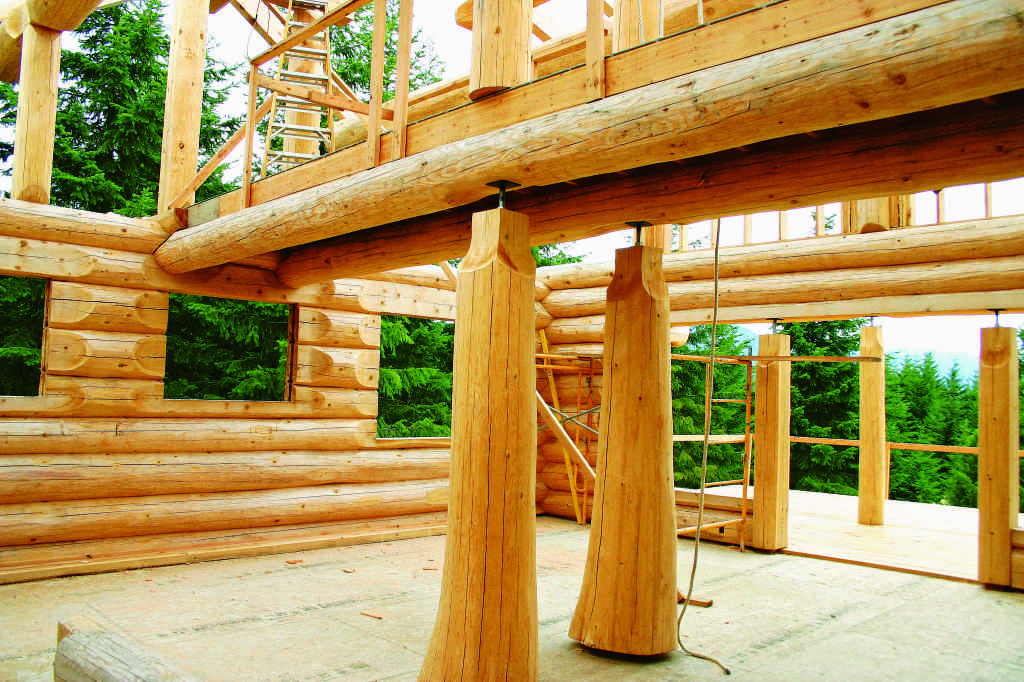The urge to jump in and start building once you settle on an exciting design and find financing is almost irresistible. But don't let impatience make you overlook an important series of steps, which we call pre-construction activities.
 Careful planning and budgeting is crucial to the success of a home-building project. You should take the time to learn all there is to know about what needs to be accomplished so that everything will go smoothly when construction gets under way. Once you start building and making draws against your construction loan, any wasted time costs money in the form of interest. The pre-construction steps of buying land, establishing a budget, scheduling construction and working with subcontractors will all need to be complete before your construction project can begin.
Careful planning and budgeting is crucial to the success of a home-building project. You should take the time to learn all there is to know about what needs to be accomplished so that everything will go smoothly when construction gets under way. Once you start building and making draws against your construction loan, any wasted time costs money in the form of interest. The pre-construction steps of buying land, establishing a budget, scheduling construction and working with subcontractors will all need to be complete before your construction project can begin.
How Deeply Will You Be Involved?
You can choose to build your log home yourself, act as your own contractor or hire a contractor to do the work for you. The decision needs to be based on how much skill, time and money you have available and an honest evaluation of your personal motivation. Here are your choices:Build It Yourself
Building your own log home can be a challenging and rewarding experience for you and your family, one you will remember for years to come. It can also save you as much as 25 percent on the cost of your home. On the other hand, it can require many hours of very hard work and might cost more in the end than a professional construction crew would have charged to do all the work for you. Log homes are perhaps a bit more easily built by do-it-yourselfers than are other homes. Erecting the log walls is usually a simple enough process, and the manufacturer provides plenty of assistance, including construction guides, construction videos and on-site technical assistance. But don't be fooled into thinking that building a log home is easy.Plenty of very hard work is necessary to build any home, and there are many skills to learn, so you'll want to evaluate your strengths and weaknesses carefully before undertaking a project this large. You probably shouldn't attempt to build the home yourself unless you are willing dedicate all of your free time-that includes weekends and evenings-to the project for the next six to 12 months. Also consider your family. They will all be involved very deeply. Make certain your spouse and children are as committed to this project as you are. If you all can make this commitment, a level of satisfaction and sense of achievement that few people ever realize will be yours.
Become a General Contractor
If you are a good planner and organizer, have the skill to manage others who will be working on your home and are persistent in searching out the best value for your money, then you have what it takes to be your own general contractor. You will, of course, need a strong working knowledge of construction techniques, the ability to discern good workmanship from poor, and the temperament to bring together a diverse group of independent subcontractors to accomplish a specified job on a set schedule. The task requires a considerable number of hours, often in the early morning and the early evening because this is the only time subcontractors can be reached by phone.The task also requires endless running around during the day to gather bids, pick up materials and inspect the work to make sure it meets your standards before you pay for it. The result of all your effort will certainly be a home that meets your exacting standards. There won't be any surprises because you will have had a hand in every decision. More important, you will save the amount a general contractor would charge for his work, plus his profit and overhead. This will usually be 15 to 20 percent of the total job cost. You may not save quite as much as you think, however, because an experienced contractor may be able to get lower bids and better prices than you can, although the savings are worth the effort. It's a job you can handle without taking off completely from your regular job, although it is helpful if your boss understands.
Turn-Key Contract
It may be that you simply don't have the time or interest in becoming deeply involved in the construction of your log home. You may then choose to contract with a professional builder to do all of the work in what is know in the industry as a "turn-key" contract. Your only involvement is turn the key and walk into a finished home. You will still be asked to make hundreds of decisions, from selecting the wallpaper to specifying the quality of hardware, but you won't have to get involved in working with subcontractors and construction management. Selecting a builder can be a demanding task unless you are fortunate enough to work with an authorized builder/dealer representing the producer of your log home.Conventional builders willing to tackle a log home on a fixed-price contract may be difficult to find because they may be unfamiliar with some of the construction techniques required. Resist the urge to sign a cost-plus contract unless you know and trust the contractor completely. A cost-plus contract is one that does not have a fixed price but pays the contractor a percentage of whatever the job costs. It offers the contractor little incentive to work efficiently and watch expenses since he will make profit no matter what.




_11868_2024-09-17_08-44-256x288.avif)






